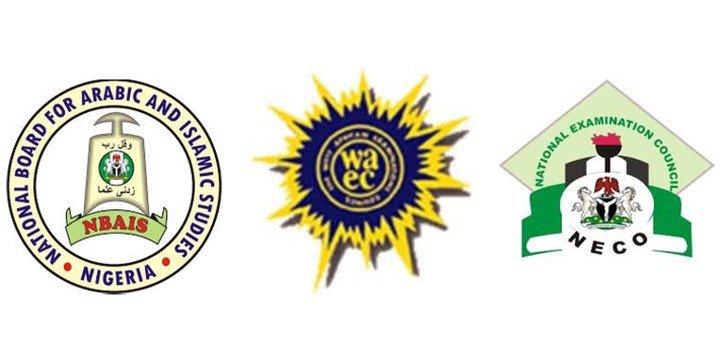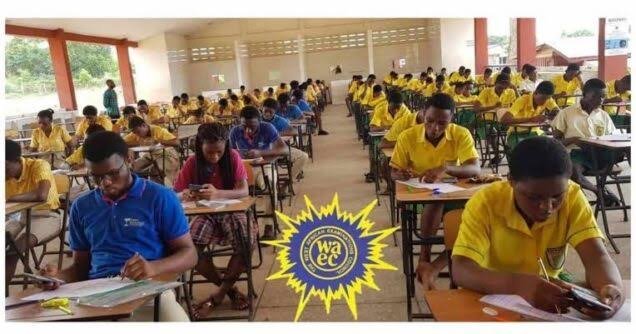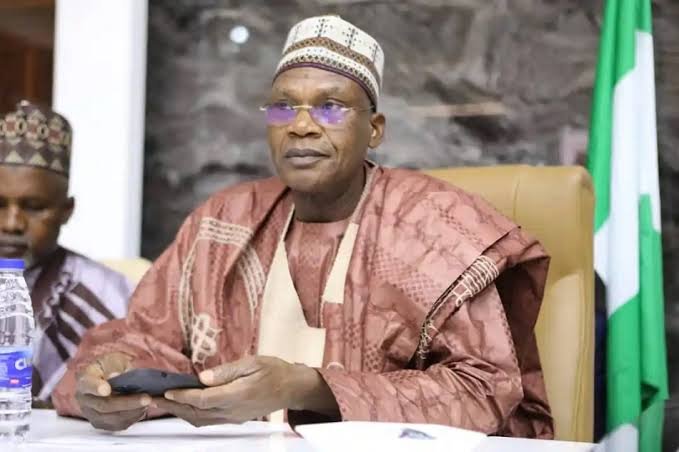Preserving the Legal Framework, Merit Standards, and Policy Integrity of Nigeria’s National Education System
To:
The Honourable Minister of Education
The Executive Secretary, National Universities Commission (NUC)
The Registrar, Joint Admissions and Matriculation Board (JAMB)
The Executive Secretary, National Board for Technical Education (NBTE)
The Executive Secretary, National Commission for Colleges of Education (NCCE)
The Registrar, Teachers Registration Council of Nigeria (TRCN)
The National Council on Education (NCE)
Distinguished Leaders and Regulators,
We, the undersigned, under the umbrella of the National Prayer Altar and in collective conscience with millions of Nigerian parents, professionals, and education stakeholders, write to express grave concern over the ratification and operationalization of the policy equating certificates issued by the National Board for Arabic and Islamic Studies (NBAIS) with those of Nigeria’s nationally standardized examining bodies: WAEC, NECO, and NBTE.
Our objection is not rooted in cultural or religious disagreement, but in the urgent necessity to preserve Nigeria’s education system as a secular, merit-based, and policy-coherent national framework in accordance with the 1999 Constitution (as amended), and in alignment with the national education regulatory architecture governed by the National Policy on Education (NPE), the Education (National Minimum Standards and Establishment of Institutions) Act, and the mandates of the National Council on Education (NCE).
CONTEXT AND POSITION
NBAIS was established to provide certification in Arabic and Islamic Studies. While it plays a valid role within its niche domain, recent developments suggest a systemic overreach whereby NBAIS certifications, specifically those linked to Tahfeez and SAISSCE, are being used as general entry qualifications into tertiary institutions.
This development, if allowed to continue, risks compromising the credibility, coherence, and equity of Nigeria’s education system. Below, we respectfully outline five core regulatory and institutional risks associated with this expansion.
KEY REGULATORY CONCERNS
1. Breach of Constitutional Neutrality and Policy Secularity
Section 10 of the 1999 Constitution unequivocally prohibits the Government of the Federation or of a State from adopting any religion as State religion. This provision is not symbolic; it is a structural safeguard designed to ensure that Nigeria’s governance, including its education policy, remains religiously neutral, inclusive, and non-partisan.
By allowing a faith-specific body like he National Board for Arabic and Islamic Studies (NBAIS) to issue certifications now deemed equivalent to WAEC, NECO, and NBTE for general admission into secular institutions, the Federal Government has taken a step that functionally violates constitutional neutrality. No equivalent recognition has been granted to Christian, Traditional African, or other religious or cultural education systems, thereby creating a de facto policy of religious preference.
This policy decision does not merely flirt with constitutional boundaries, it crosses them. It introduces a theological asymmetry into a national education system that is, by law and by design, intended to be secular, merit-based, and religiously agnostic. Such elevation of one religious certification structure into the general admissions framework, without a corresponding legislative framework or national consensus, represents a structural breach of Nigeria’s policy secularity. It sets a precedent that is both legally unsustainable and socially destabilizing.
2. Structural Discrimination and the Precedent for Religious and Ethno-Cultural Fragmentation
Recognizing NBAIS as a general academic qualification, without establishing statutory equivalents for Christian, Traditional African, or indigenous language-based education systems, sets a dangerous and indefensible precedent. The Federal Government cannot lawfully, ethically, or politically justify privileging one faith-linguistic framework while excluding others.
As of today, no federal education board exists for Igbo, Yoruba, Hausa, Tiv, Ijaw, or Christian Biblical Studies. Elevating a faith-anchored, linguistically specific institution like NBAIS into the national admissions ecosystem, while denying the same institutional opportunity to other traditions, constitutes structural discrimination. This action violates the constitutional mandate of religious neutrality under Section 10 and directly undermines the Federal Character principle under Section 14(3) of the 1999 Constitution. It also invites a wave of lawful demands from other religious and cultural groups for federal equivalence, resulting in a proliferation of fragmented certification boards, ideologically divergent syllabuses, and policy incoherence. This is not reform. It is fragmentation disguised as inclusion.
3. Educational Exclusion Disguised as Access: A Policy that Fails Equity
The absence of federal certification pathways for other cultural and faith traditions is not just a legal asymmetry, it is an act of educational exclusion. The current policy effectively blocks entire communities from participating in similar pathways, creating an unconstitutional tier system in national education access.
In principle, educational inclusion must offer equal recognition and equal institutional status to all traditions within a plural society, not selective elevation. By institutionalizing access for one group while ignoring others, the NBAIS equivalence policy excludes by omission. Such exclusion is not only inequitable, it is nationally destabilizing.
True equity is not about expanding opportunity for some while silencing others. It is about designing an education system that reflects the full spectrum of Nigeria’s civic, cultural, and constitutional diversity. In its current form, the NBAIS policy falls far short of this standard, and cannot stand unchallenged.
4. Lack of Transparent National Moderation and Parity Standards
To qualify as a general certification body within Nigeria’s national education framework, an examining institution must demonstrate transparent alignment with the National Policy on Education (NPE) and undergo independent curriculum standardization and moderation by statutory bodies such as the Nigerian Educational Research and Development Council (NERDC) and the National Council on Education (NCE).
As of this petition, there is no publicly available evidence that NBAIS certifications, particularly the SAISSCE and Tahfeez streams, have been subjected to such nationally recognized moderation or curriculum harmonization. In key areas essential to Nigeria’s academic and civic development (STEM education, national history, civic studies, and comparative humanities) it remains unclear whether NBAIS meets the parity standards required of NECO, WAEC, or NBTE. This absence of verifiable parity raises profound concerns about the comparability, portability, and credibility of NBAIS certifications for general admission into secular tertiary institutions.
Even where NBAIS claims to teach certain core subjects, certification without transparent national moderation cannot be assumed to meet universal academic standards. Equivalence must be proven through inter-agency oversight, public and international validation, not presumed by policy declaration or internal assessment alone.
Until such independent moderation is documented and published, granting equivalence to NBAIS certificates poses an unjustified risk to quality assurance, graduate competence, and institutional credibility at the national level.
5. Unclear Mandate and the Absence of Verified Legal or Policy Basis
The operational expansion of the National Board for Arabic and Islamic Studies (NBAIS) into the space of general academic certification remains opaque, undocumented, and procedurally unverified. To date, there is no publicly accessible Act of the National Assembly, Executive Order, or inter-agency communiqué from the Federal Ministry of Education, NUC, NBTE, NCCE, JAMB, or NERDC that explicitly confirms NBAIS’s elevation to the status of a general certifying body for secular tertiary admissions. While some stakeholders have alluded to a “ratification” of its mandate, such claims remain unsubstantiated. Even if internal policy recognition has occurred, legitimacy in a federal education system is not conferred by silence, speculation, or stealth. It must be backed by clear legal authority, curricular harmonization, and stakeholder consensus, none of which have been transparently demonstrated.
Until the process by which NBAIS attained such parity is publicly disclosed, legislatively referenced, and academically justified, the current equivalence posture amounts to a policy black box — one that contradicts Nigeria’s long-standing commitment to education standardization, federal character, and constitutional equity. In matters of national certification, ambiguity is not an administrative oversight; it is a systemic breach.
OUR DEMANDS
To safeguard the constitutional foundations, educational credibility, and national unity of the Federal Republic of Nigeria, we make the following unequivocal demands:
1. Total and Immediate Abolition of NBAIS Certificate Equivalence
The Federal Ministry of Education, in concert with NUC, JAMB, NBTE, NCCE, and TRCN, must publicly and permanently abolish the policy equating NBAIS certificates with WAEC, NECO, or NBTE for the purpose of general academic admission or professional qualification.
This policy was introduced without constitutional backing, regulatory transparency, or national consensus, and must therefore be declared null, void, and of no further effect, effective immediately.
2. Reaffirmation of National Certification Boundaries
The Presidency and National Assembly must issue a formal declaration that, in accordance with national law and education policy, only certifications administered by WAEC, NECO, NABTEB, and NBTE-approved bodies shall be accepted for general academic progression and access to professional training in Nigeria. This reaffirmation is critical to prevent silent substitution, parallel credentialing, or future manipulation of admission standards through unauthorized or narrowly scoped certifying boards.
3. No Special Status Without Universal Equity
If the Federal Government is to entertain specialized educational boards of any kind, it must first establish a comprehensive, secular, and merit-based national framework — accessible to all faiths, languages, and cultural systems under identical conditions. Until such a framework exists, and is enacted through full legislative and regulatory process, no cultural or religious certification, including that of NBAIS, may be granted national status or equivalence.
CONCLUSION
We acknowledge the ongoing efforts of regulatory bodies to uphold educational standards in Nigeria. However, the policy equating NBAIS certificates with those of WAEC, NECO, and NBTE represents a fundamental breach of national education integrity, constitutional balance, and institutional trust. It is not merely an administrative anomaly, it is a strategic distortion of Nigeria’s secular, merit-based education framework, introduced without transparency, national consultation, or curricular equivalence.
This is not a call for review or reform. It is a call for total reversal.
We therefore urge all relevant authorities across the education sector, civil society, legal institutions, and democratic governance to act immediately and decisively.
This is a defining moment for Nigeria: either we uphold one national standard for all, or we descend into a patchwork of privileged pathways that fracture the very foundation of equity and unity.
The NBAIS equivalence policy must be abolished in its entirety. The future of Nigeria’s children, its institutions, and its democratic integrity depends on it.
Follow us on all social media platforms @dailyquery for news and analyses around the globe.


























